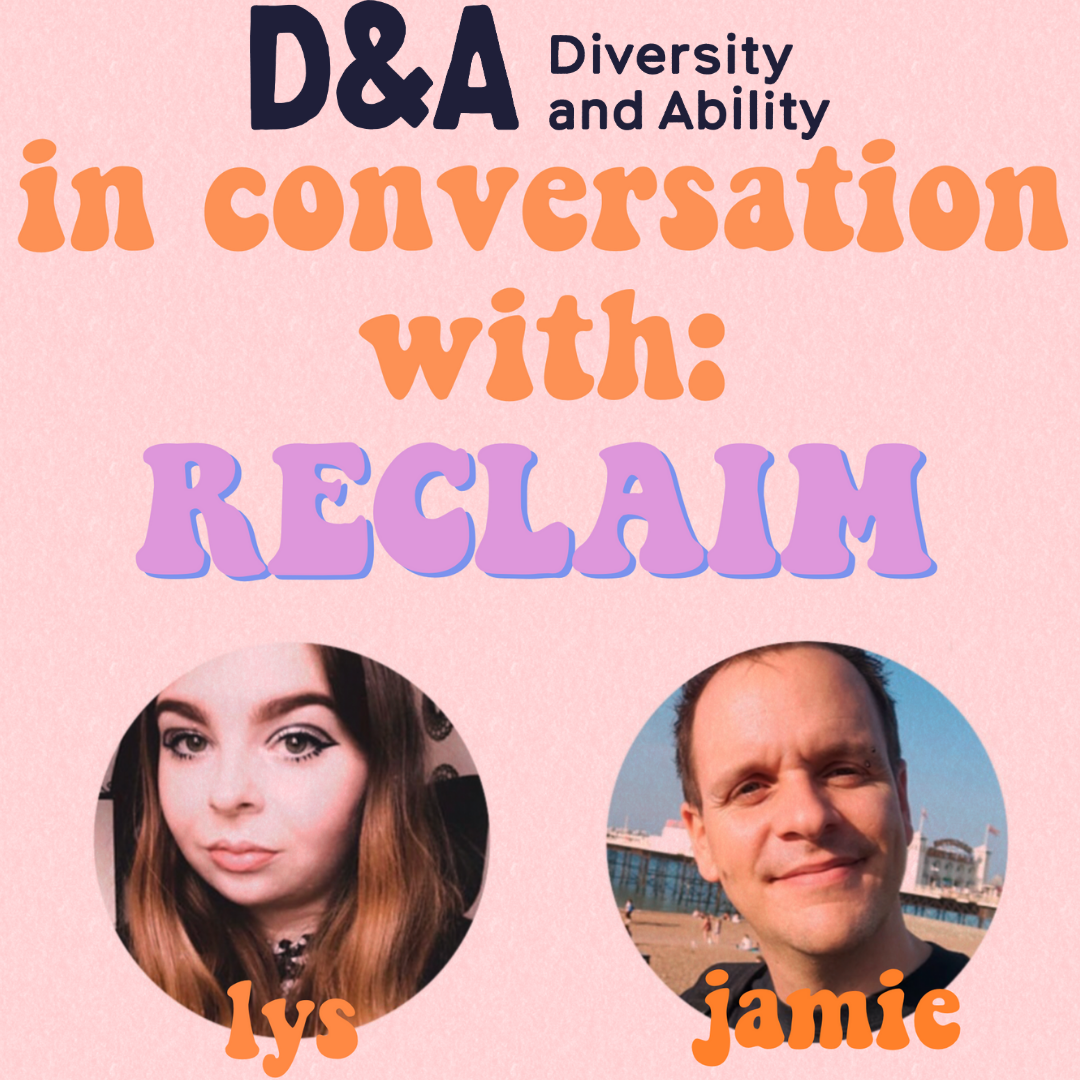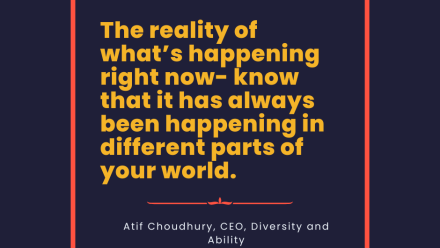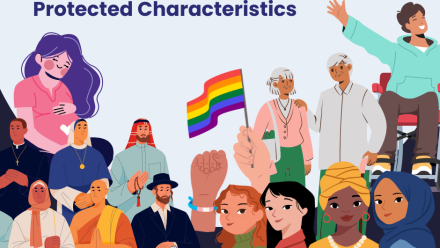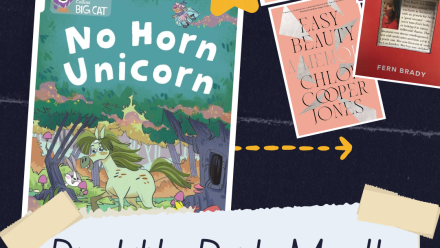A hidden intersectionality: care experience, disability and neurodiversity
27th April 2021 by Lys Eden and Jamie Crabb
Care Experienced as an identity is becoming increasingly embraced by a growing community. This community has lived experience of being looked after with support of state intervention in a range of settings such as foster, residential, kinship care and adoption. And April 2021 is the first Care Experienced History Month, which calls for global recognition of the shared histories that care experienced people have endured. As part of history month, D&A invited Lys Eden and Jamie Crabb, members of RECLAIM Collective, to explore their lived experience of the intersection of care experience, disability and neurodiversity.

Lys’ Story
Coming up to the seventh anniversary of my first spinal surgery this month, I have felt compelled to write about my experiences as a care experienced and disabled woman. But I didn’t know where to start. It still felt strange to be applying the word ‘disability’ in reference to myself, I noticed a sense of resistance. This resistance became my starting point for what I wanted to write about.
When I was 14 I was diagnosed with dysplastic spondylolisthesis, a congenital deformity located in my spine which caused my vertebrae to slip forward. This, coupled with spinal stenosis, meant that over time my spinal cord became impinged by the slipped vertebra. As you can imagine, this was (and continues to be) a very painful and debilitating condition for me to endure.
At 16, I underwent two major surgeries to stabilise my spine and prevent paralysis. I had only recently become ‘looked-after’ in the months prior, and my GCSE exams were nearing. There was a sense of urgency from the surgical team as my condition was deteriorating rapidly. One day my foster carer accidentally left a letter out from the hospital. I opened it and it was a surgery date booked for the month after. She later explained that this was not the first. She had been instructed to hide the letters from me until the surgical team provided a date that aligned with my GCSE exam schedule. By the very institutions that I was supposedly ‘looked-after’ by.
Navigating foster care was hard enough. But now not only did I have to fight for my rights as a care experienced person, I soon found myself fighting against the same systems that were now excluding me because of my disability.
After many meetings with my school, it was finally agreed that I was to be ‘allowed’ to take my exams at home. Those meetings made me realise how valued Ofsted exam board results were to schools; over providing a disabled and care-experienced student with an opportunity to have what everybody else had.
One week after I was discharged from the hospital I took my first exam, bedbound and immobilised in a body brace. Everybody was anticipating my ‘inevitable’ failure, so you can imagine my rather smug face when I received my results in the school hall, which included a handful of A*s & A’s. Not bad for a care kid who just had 10 hours of spinal surgery.
Despite this, I internalised a lot of stigma from this experience – compounded by the stigma I already encountered because of my care status. People simply did not believe in me. The insidious force of stigma followed me wherever I went. I felt its presence lurking in the shadows of higher education. I had to disclose my care experience and disability to ensure I was ‘’fit to practice’’ at the beginning of my course. I minimised its impact because I was preoccupied with this constant fear of being ‘found out’ as a fraud, as undeserving, as defective. And so, I did not talk about it.
There appears to be little focus or acknowledgement in relation to care experienced people and their experiences of disability, despite research suggesting an over-representation of individuals with disability within the care system. Evidently, this has significantly impacted my own understanding, recognition and acceptance of my disability – and therefore my readiness to access support that could have made my University experience a much smoother journey.

Jamie’s Story
In February 2020 I was invited to speak at the parliamentary launch of Destination Unknown: improving transitions for care leavers and young people with SEND. This important report recognising how care leavers and young people with SEND can struggle to achieve positive longer-term outcomes likely went under the radar as COVID-19 superseded it. At the age of 38, it was the first time I had spoken openly about the intersection of my care experience and neurodiversity. I spent the first 18 years of my life in foster care. Throughout my primary and secondary education I struggled significantly with aspects of learning and emotional regulation. Feeling back to that time, my brain felt like it was in a vice, and my emotions overwhelmed me. Unfortunately, no one understood or recognised the underlying difficulties I experienced. Focus on my complex behaviours and potential hereditary mental health overlooked two elephants in the room: developmental trauma and undiagnosed specific learning difficulties. I struggled into adulthood with study, the workplace and emotional regulation and found myself at the age 27 with ineffective coping strategies almost dropping out of my second attempt at postgraduate study. I was fortunate a colleague asked “have you checked if you have learning difficulties” that led to a diagnosis of dyspraxia and dyslexia. A significant overdue and overwhelming A ha!
My story is not an isolated example. In the past few years, I have met many care experienced people who were diagnosed with learning differences and neurodiversity significantly after leaving care. This open access journal article published in April 2021 identifies 60% of care leavers were found to have unidentified Developmental Language difficulties. We need to ask to what extent a predetermined focus upon care experienced people’s behaviours and the paradigm of mental health overlooks the potential of undiagnosed learning differences and neurodiversity?
Understanding I had learning differences was life changing. I accessed an amazing 1:1 tutor called Tanya and other support through the Disabled Students Allowance (DSA). Tanya supported me as I struggled, helped me develop confidence and strategies that worked for me and referred me to therapeutic services who rather than prescribing me a label asked “what happened to you?” What was important for me to many other care experienced adults was one caring adult who struggled alongside and believed in me. Our important relationship led me to train in learning differences support, work as a disability coordinator and a member of the brilliant Diversity and Ability (D&A) community. Recognition of the power of authentic and enabling relationships in my work with students, together with growing awareness of the harm of pathologising mental health systems led me to train in and practice relational counselling and psychotherapy.

Supporting change
We have shared our stories to demonstrate how the intersection of care experience, disability and neurodiversity can create additional challenges and barriers for care experienced people. In reading our stories we suggest three ways you can become an ally to care experienced people:
- Consider intersectionality including disability and neurodiversity: How can you become an ally to support care experienced people to overcome intersectional barriers and stigma?
- Focus on building empathetic, caring and enabling relationships: How can you be a care experienced person’s one caring adult?
- Recognise the value of peer support: How can you support care experienced people and students to connect with their community for mutual understanding and support?
Lys and Jamie are members of RECLAIM, a collective focused on healing together, supporting each other, understanding our shared histories and imagining possible futures. RECLAIM have developed a growing website resource including signposting Support Resources for Care Experienced people and Resources for Allies and history collates materials to raise awareness of Care Rights Movement and activism.
Some signposting and resources to connect with and support care experienced people and students:
- Learn about and raise awareness of CEP history month and Care Experience and Culture. If you are on social media you can follow and support the month’s events using the hashtags #CEHM #CareExperiencedHistoryMonth.
- #CEP and #CareExperienced are helpful hashtags to connect with and support care experienced voices on the growing Twitter community and Instagram.
- Estranged and Care Experienced Students (EaCES) is a website and community offering advice and information to support Care Experienced and estranged students in higher and further education, to share lived experiences and stories and build community.
- The Alliance of Care Experienced People in Higher Education is a community of care experienced people researching, working and studying in HE eager to support and encourage one another.
- The REES Foundation support care experienced people across the life course including a membership that offers a variety of support. Peer Networks include Uni:fy a virtual community of care experienced people, of all ages, who also share the experience of University Life.


